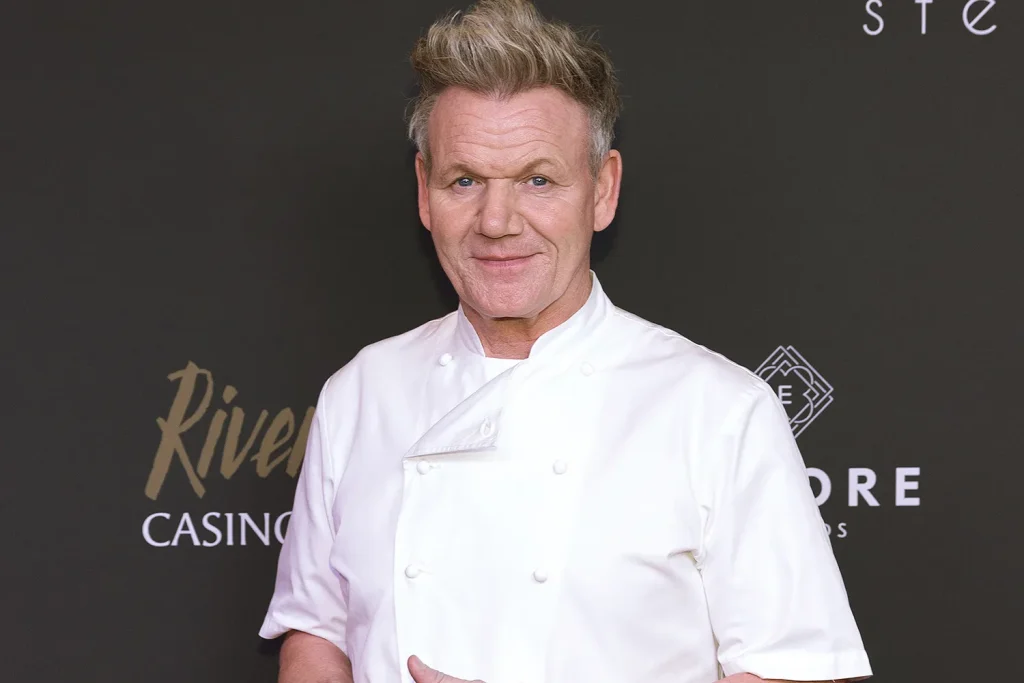Gordon Ramsay Delivers Obscenity-Laced Rejection of Menu Changes for Diners on Weight-Loss Injections
In a recent interview with The Sunday Times, celebrity chef and restaurateur Gordon Ramsay did not mince words when asked whether he would adjust his restaurant menus to cater to diners taking weight-loss injections such as Ozempic or Mounjaro. At 59, Ramsay remains one of the world’s most recognisable culinary figures, known for his Michelin-starred empire, fiery on-screen persona, and a no-nonsense philosophy when it comes to food. His response to the question came as no surprise to anyone familiar with his style—unfiltered, blunt, and entirely unapologetic.

“There’s no way,” he said flatly when asked if he’d create a reduced-portion or specialised menu for people on these medications. “That is absolute bullshit … There’s no f—— way we’re giving in to the Mounjaro jab. The problem is with them [the diners] for eating too much in the first f—— place!”
Ramsay’s comments, which quickly spread across the media, underscored his refusal to adapt his culinary creations to what he views as fleeting diet trends or medical fads. In his mind, dining out is an experience meant to be savoured, not scientifically engineered to fit pharmaceutical side effects. His stance came as a direct contrast to some other chefs in the industry, like Heston Blumenthal, whose famed restaurant The Fat Duck recently announced a reduced-portion “mindful menu” for diners who might have smaller appetites due to weight-loss medications or lifestyle choices.
For Ramsay, that kind of accommodation is unthinkable. He sees food as an art form, not a clinical service. The idea of adjusting his plates to suit a medical regimen violates his philosophy that dining should celebrate abundance, craft, and flavour—not restriction. “There’s no way that we’re coming in with an Ozempic tasting menu to make you feel like less of a fat f— by 10:30 in the evening,” he reportedly added, with his trademark bite.
At the heart of Ramsay’s response is a larger debate sweeping through both the culinary and health worlds. Weight-loss injections like Ozempic (semaglutide) and Mounjaro (tirzepatide), originally developed for diabetes treatment, have exploded in popularity for their ability to suppress appetite and assist in weight management. Their rise has already begun to reshape how people eat, how much they eat, and how they think about dining altogether. Some high-end restaurants are quietly considering lighter menus or flexible portioning to meet the growing demand from customers who physically can’t finish traditional meals.

Ramsay, however, has never been one to follow trends. He sees the idea of tailoring menus for this demographic as a step too far—an erosion of what makes restaurant dining special. In his eyes, if you choose to take a medication that curbs appetite, that’s a personal choice, but it doesn’t obligate chefs to redesign decades of culinary tradition. His message is simple: eat less if you must, but don’t ask him to change his plates.
Beyond the injections debate, Ramsay also took the opportunity to criticise modern dining culture, calling out what he described as the “Instagram effect” that’s overtaken restaurant experiences. “F—— ring lights and posting about how good the food is,” he said, adding that American diners are “the worst offenders … because they’re constantly taking f—— pictures with their flashlights on.” The chef’s frustration with performative dining and social media vanity fits neatly with his no-filter persona. In Ramsay’s world, food should be eaten, not staged; savoured, not documented.
Ramsay’s stance reflects both his old-school discipline and his disdain for compromise. Having spent decades building a brand synonymous with excellence and intensity, he’s made it clear that his menus are not open to negotiation. His kitchens, whether in London, New York, or Las Vegas, are temples of consistency—each dish designed to meet his precise standards. Adjusting that to accommodate new cultural or medical fads would, in his view, dilute what dining is supposed to represent.
Critics, however, have pointed out that Ramsay’s comments could be interpreted as dismissive of legitimate health needs. Weight-loss medications are not merely “fads” for many people—they are prescribed by doctors as part of treatment plans for obesity and metabolic disorders. The conversation around them extends far beyond vanity; it touches on mental health, access to care, and the evolution of how society approaches nutrition and body image. In that sense, Ramsay’s blunt remarks walk a fine line between defending culinary integrity and overlooking the complexities of modern health.
But to his defenders, that’s exactly what makes him who he is. Ramsay’s appeal lies in his authenticity. He’s never pretended to be politically correct or overly accommodating. His bluntness, they argue, isn’t cruelty—it’s conviction. He built his reputation by demanding perfection from his staff, not pandering to trends. To them, his refusal to bend to the Ozempic wave is a stand for artistic integrity in a world increasingly driven by convenience and compromise.
The reality is that restaurants are already evolving, whether Ramsay likes it or not. Across the U.S. and Europe, chefs are experimenting with smaller tasting portions, lower-calorie menus, and ingredient adjustments that cater to new dietary norms. While some do so to accommodate medical needs, others are responding to shifting appetites and sustainability concerns. Ramsay’s outburst, then, becomes part of a wider cultural clash—between those who see adaptation as progress, and those who see it as dilution.
Still, it’s important to recognise that Ramsay isn’t opposed to mindful eating itself. In past interviews, he’s spoken about maintaining his own fitness through balanced diets and exercise, crediting his healthy lifestyle for his energy and longevity in the demanding world of fine dining. What he rejects is the idea that culinary excellence should adjust itself to every passing wave of diet culture. In his view, food should challenge, excite, and inspire—not simply appease.
From a business perspective, his stance also makes practical sense. Operating more than 50 restaurants worldwide, Ramsay’s empire thrives on consistency. Creating alternative menus or portion structures across all those establishments would complicate operations and risk diluting the brand’s identity. His culinary signature—rich sauces, indulgent cuts, powerful flavours—isn’t built for half-measures.
And yet, his words have sparked meaningful discussion about how the hospitality industry will adapt as pharmaceutical appetite-control becomes mainstream. For younger chefs, the question may not be whether to adapt, but how. Will fine dining in the future feature optional half-portions? Will tasting menus become lighter by design? Will calorie awareness replace indulgence as the hallmark of modern luxury?
For Ramsay, though, the answer remains an emphatic no. His kitchens will continue to serve dishes that are as bold as his personality. The customers, he implies, can make their own choices—eat less, share plates, or simply come hungry. What he won’t do is rewrite the foundation of his craft to cater to changing appetites.
Ultimately, Ramsay’s response may be offensive to some and refreshing to others, but it’s undeniably true to character. In an industry where diplomacy often masks opinion, his honesty cuts through. Whether you admire him or not, there’s something resolute about his unwillingness to bend—especially in a culture that seems to bend to everything.
At the end of the day, Gordon Ramsay is Gordon Ramsay: unfiltered, relentless, and devoted to the food that made him who he is. His menus will stay the same, his standards will stay high, and his voice—full of expletives or not—will continue to dominate the kitchen. For those taking weight-loss injections or following new health regimens, he has one piece of advice, delivered with his trademark grit: make your own adjustments, but don’t expect the chef to change his recipes.


